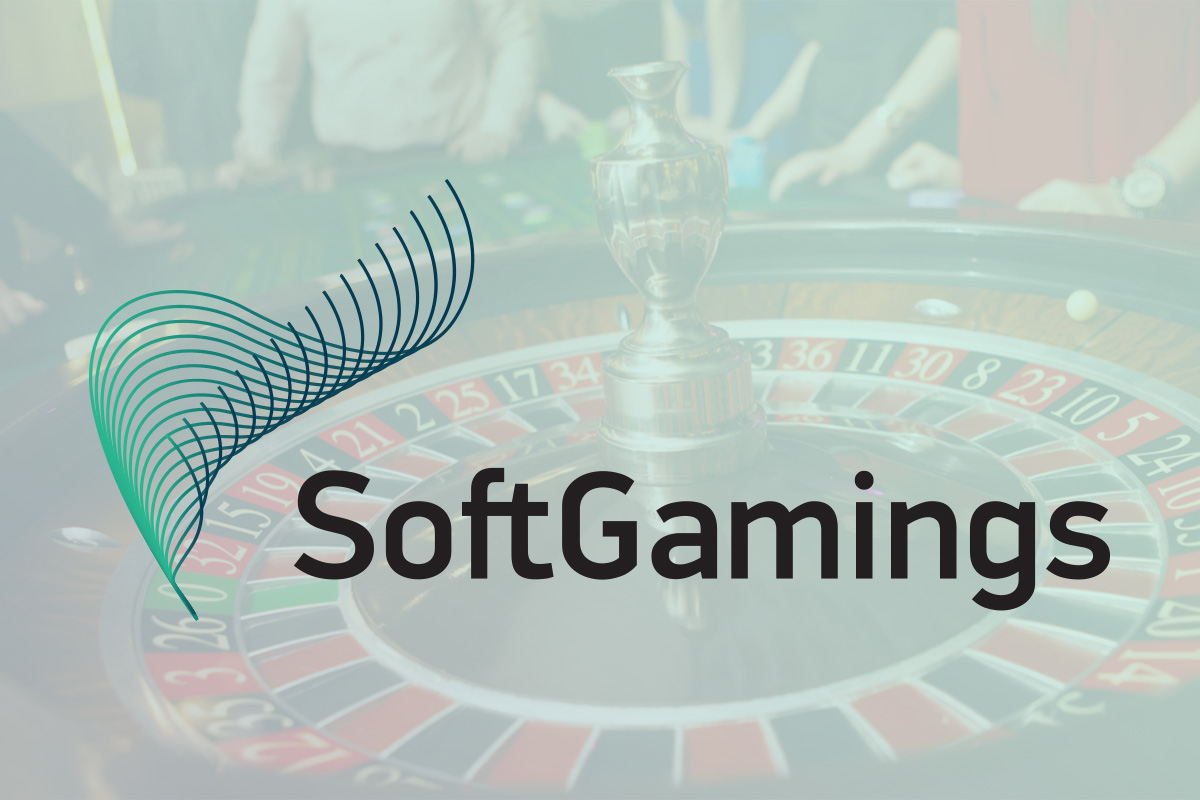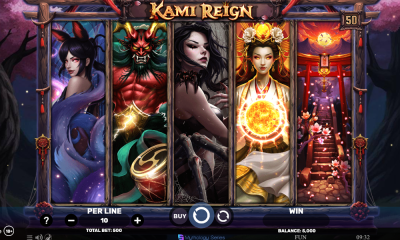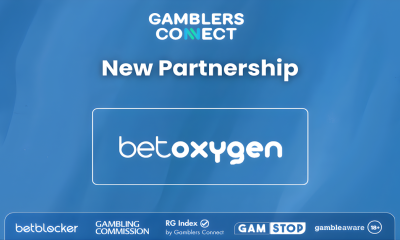Compliance Updates
SoftGamings Receives New A1 License in Greece

SoftGamings reports another successful global expansion after receiving an A1 license in Greece. This will allow the company to expand its global dominance by stepping into the Greek market.
The whole process started in 2019 when Greece decided to make changes in its regulatory framework. In October of the same year, Greece’s Parliament and Ministry of Finance went a step further and submitted a document to the European Commission outlining new regulations.
At the beginning of 2021, SoftGamings applied for the A1 license in Greece to the Hellenic Gaming Commission (HGC). On June 1, 2021, SoftGamings received its Manufacturer A1 Suitability license, which allows the company to offer its services and products to regulated and licensed operators in Greece.
According to Irina Sazonova, SoftGamings’ Director of Partnerships, the company is extremely proud of acquiring its latest license. She added that SoftGamings is happy to continue its global expansion, moving closer to its goal with the Greek market. Here is what she shared about the iGaming industry in Greece: “The Greek market has experienced significant growth in online gaming over recent years, and becoming a licensed provider in Greece would be a valuable milestone to open up new opportunities.”
SoftGamings considers Greece a fruitful market in the iGaming industry, which will hopefully prove correct after this expansion. The Hellenic iGaming landscape looks promising, with its market growing steadily in the last couple of years. The new regulatory system will significantly contribute to the industry’s sustainable growth.
Powered by WPeMatico
California
CGCC Gaming Policy Advisory Committee (GPAC) Meeting: Jan 20, 2026

The California Gambling Control Commission (CGCC) has scheduled a meeting of the Gaming Policy Advisory Committee (GPAC) for 1:00 p.m. on Tuesday, January 20, 2026.
The committee is established under Business and Professions Code Section 19817 to provide advisory recommendations to the Commission on regulatory policy, with a specific focus on integrity and problem gambling.
Meeting Attendance Information
The meeting will be conducted in a hybrid format, allowing for both in-person and remote participation.
-
In-Person Location: 2399 Gateway Oaks Drive, Hearing Room 100, Sacramento, CA 95833.
-
Virtual Access: Zoom Meeting Link
-
Phone Access: 1-888-475-4499 (Toll-free) | Meeting ID: 285 757 8614
Key Agenda Items
The agenda focuses on internal governance, regulatory controls for third-party providers, and administrative updates:
-
GPAC Roles and Responsibilities: A review of the mission statement, adherence to the Bagley-Keene Open Meeting Act, and expectations for member conduct and responsiveness.
-
Current Projects: Update and discussion on Third-Party Providers of Proposition Player Services (TPPPS) – Internal Controls, led by subcommittee members Kirill Yermanov and Michael Hill.
-
New Discussion Items:
-
Third-Party Provider Employee Table Coverage.
-
Procedures for Lost or Damaged Employee Badges.
-
-
Administrative Updates: An update on the Category G vacancy (Public Member with accounting/business background).
2026 Committee Composition
The committee consists of 10 members (expanding to 12 if pending legislation like AB 77 is finalized), split equally between the cardroom industry and the public.
| Member Name | Category / Role | Term Expiry |
| Trevor Dewar | Category A (Bureau of Gambling Control) | 12/31/2026 |
| Sosha Marasigan-Quintero | Category B (Problem Gambling/Addiction) | 12/31/2026 |
| Michael Hill | Category C (TPPPS Representative) | 12/31/2027 |
| David Fried | Category D (Cardroom with 25+ Tables) | 12/31/2026 |
| Michael Koniski | Industry Representative | — |
| Emmanuel Macalino | Industry Representative | — |
| Linda Ng | Public Representative | — |
| John Stacy | Industry Representative | — |
| Kirill Yermanov | Public Representative | — |
Advisors: Lisa Wardall (Executive Director) and Jason Pope (Chief Counsel).
The post CGCC Gaming Policy Advisory Committee (GPAC) Meeting: Jan 20, 2026 appeared first on Americas iGaming & Sports Betting News.
Compliance Updates
Finland’s Gambling Reform Is Official – What Happens Next?

The wait is over: The Finnish Parliament has officially approved the new gambling legislation. In a decisive plenary session, MPs voted 158 in favor to 9 opposed, with 32 abstaining. The text remained unchanged from the version presented in previous weeks, solidifying the framework for Finland’s transition from a monopoly to a licensed market.
With the political uncertainty resolved, the focus now shifts to implementation. For operators, this means the race to compliance—and market entry—has effectively begun.
The Confirmed Timeline

With the legislation passed, the roadmap to the market opening is now set. Operators must use the coming months to prepare for a rigorous licensing process.
-
Early 2026: The application window is expected to open. The regulator will begin accepting and reviewing license applications.
-
2026 (Throughout): The “preparatory year.” This period is dedicated to vetting applicants, ensuring technical compliance, and establishing the new supervisory authority.
-
January 1, 2027: The regulated Finnish market officially opens. Licensed operators can go live with betting and online casino services.
Entering the Finnish Market with Nordic Legal
Navigating a new jurisdiction is complex, but it doesn’t have to be inefficient. With extensive experience advising on gaming licences across the Nordic markets, Nordic Legal brings a proven, practical approach to the Finnish process.
Efficiency Through Synergy If you already work with us in Denmark or Sweden, we ensure your Finnish licence application isn’t a “start from scratch” project. We build directly on our existing knowledge of your organisation and systems.
Your usual Nordic Legal contact will coordinate directly with our Helsinki team at no extra cost. This integrated approach saves you time and avoids the frustration of duplicating work you’ve already done for other Nordic licenses.
Our Approach We focus on smart compliance:
-
Reusing documentation where regulations overlap.
-
Anticipating regulatory questions before they are asked.
-
Aligning requirements for technical standards and responsible gambling.
-
Engaging constructively with the Finnish authority to ensure a smooth process.
The Finnish Licence Application Package
To support your entry, we offer a comprehensive package designed to handle the heavy lifting:
-
Translation of all required documents.
-
Guidance and completion of complex application forms.
-
Full project management from start to submission.
-
Direct communication with the Finnish regulator on your behalf.
Next Steps
The window for preparation is narrowing. Contact your usual Nordic Legal advisor today to discuss the new legislation or our Licence Application Package. Alternatively, reach out to us directly to secure your place in Finland’s upcoming regulated market.
The post Finland’s Gambling Reform Is Official – What Happens Next? appeared first on Gaming and Gambling Industry Newsroom.
Compliance Updates
Updated FATF Lists of High-risk Jurisdictions

Reading Time: < 1 minute
The Danish Gambling Authority has called attention to FATF’s (Financial Action Task Force) updated lists of high-risk jurisdictions: the Grey List (jurisdictions under increased monitoring) and Black List (call for actions). Among other things, gambling operators must include FATF’s lists of high-risk jurisdictions when risk assessing players.
Jurisdictions listed on the Grey List:
Algeria, Angola, Bolivia, Bulgaria, Cameroon, the Ivory Coast, DR Congo, Haiti, Kenya, Laos, Lebanon, Monaco, Namibia, Nepal, South Sudan, Syria, Venezuela, Vietnam, the Virgin Islands and Yemen.
Jurisdictions listed on the Black List:
Democratic People’s Republic of Korea, Iran and Myanmar
Gambling operators are required to conduct enhanced customer due diligence (EDD) pursuant to section 17(1) of the Danish AML Act, if a player is assessed to impose a higher risk of the gambling operator being misused for money laundering or terrorist financing.
Gambling operators shall conduct this risk assessment based on Annex 3 to the AML Act (high-risk factors) which includes the FATF high-risk country lists (the so called black list and grey list)
It is not required that gambling operators perform EDD if a country is listed on the FATF’s list. EDD are only a requirement for players from jurisdictions listed in the EU Regulation of High Risk Third Country list pursuant to. 17(2) of the AML Act.
The post Updated FATF Lists of High-risk Jurisdictions appeared first on European Gaming Industry News.
-

 Hold and4 days ago
Hold and4 days agoPragmatic Play Rings in 2026 with Joker’s Jewels Hold & Spin™
-

 iGaming News 20264 days ago
iGaming News 20264 days agoSpinomenal Rings in 2026 with Japanese-Inspired “Kami Reign Ultra Mode”
-

 Five Elements Slot4 days ago
Five Elements Slot4 days agoPG Soft Concludes 2025 with High-Volatility Launch: Mythical Guardians
-

 Latest News4 days ago
Latest News4 days agoFrom ‘Mummyverse’ to Crash Games: Belatra Reviews a Landmark 2025
-

 Bespoke Gaming Studio4 days ago
Bespoke Gaming Studio4 days agoCreedRoomz and Casumo Forge Strategic Partnership to Elevate Live Casino Experience
-

 Aztec Slot3 days ago
Aztec Slot3 days agoEvoplay Unveils Sunstone Riches: An Aztec Adventure Powered by the Sun
-

 Akshat Rathee3 days ago
Akshat Rathee3 days agoIndian Esports 2026: Strategic Growth and the Asian Games Milestone
-

 B2B gaming software4 days ago
B2B gaming software4 days agoGamblers Connect and BetOxygen Announce Strategic B2B Partnership

















